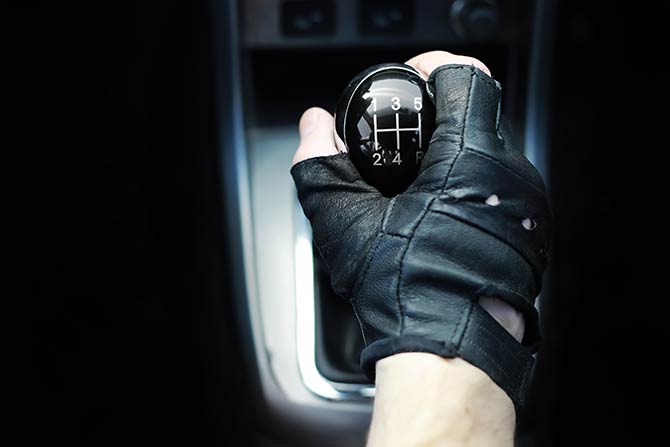If the provisions promoting early settlement are effective, it would be a blessing for dealerships.
There have been seismic developments in the world of California’s lemon law in recent months, with both the California Supreme Court and state Legislature weighing in. The California Supreme Court holds that used vehicles sold with the balance of the factory warranty remaining are not “new” vehicles.
In Rodriguez v. FCA, the California Supreme Court was tasked with deciding whether noncertified used vehicles sold with the balance of the new factory warranty are “new” vehicles for the purpose of being eligible for the “refund or replace” remedy under the Song-Beverly Act, better known as the California Lemon Law. On Oct. 31, 2024, the Court issued its long‑awaited decision, and in a big win for manufacturers held that vehicles sold with the balance of the factory warranty are not new vehicles for purposes of the lemon law. The Court found that manufacturers’ liability attaches only when they issue a warranty concurrently with the sale, which is not the case when a vehicle is sold with the balance of the factory warranty remaining. The determination is key, as manufacturers are required to buy back or replace a defective new motor vehicle.1
The Song-Beverly Act does provide a similar remedy for buyers of used motor vehicles, but places the obligation on the “distributor or retailer seller making express warranties” with respect to the used vehicle. 2 On noncertified used vehicles, the dealership faces potential claims under the “refund or replace” remedy on vehicles for which it provides a warranty concurrent with the sale.
While the decision is a major win for the manufacturers, it is, at best, a mixed bag for dealerships. Dealerships will retain the statutory and contractual right of indemnification from manufacturers on lemon law cases involving new vehicles and vehicles certified under the manufacturers’ CPO guidelines. This is because, in those sales, the manufacturer is issuing a warranty concurrent with the sale — be it a new vehicle warranty or a certified pre-owned warranty.3 However, previously, manufacturers had to defend lemon law claims against them arising from purchasers of used vehicles with the balance of the original new vehicle warranty remaining — and arguably had a statutory duty to defend dealerships, even those dealerships of different makes, that sold these vehicles.
While the Rodriguez decision will reduce the amount of lemon law claims against the manufacturers, dealerships have lost an important tool for limiting their exposure and legal costs, and it may result in increased lemon law litigation against dealerships. Dealerships cannot disclaim the implied warranty of merchantability on any used car sale in which the dealership certifies the vehicle, issues a written warranty, or sells a service contract in which it is obligated to perform the services.4 We reasonably anticipate that the plaintiffs’ bar will shift their focus away from the manufacturers to the selling dealerships for claims related to the implied warranties that accompany the sale of a used vehicle, claims for fraud or negligent misrepresentation regarding the condition of the vehicle at the time of sale and the representations made by the sales staff, and Consumers Legal Remedies Act (CLRA) claims regarding the condition of the vehicle.
AB 1755 Becomes Law
Gov. Gavin Newsom recently signed into law Assembly Bill 1755 (AB 1755), which significantly modifies the California Lemon Law and introduces mandatory mediation and seeks to streamline these cases. The bill had an unusual path to becoming law. AB 1755 was originally a measure intended to deal with child support, but with less than two weeks left in the legislative session, the bill was wholly revised, with all provisions regarding child support removed, and the lemon law language inserted. The bill was negotiated between some consumer attorneys and some manufacturers, notably General Motors, while other consumer attorney groups and many manufacturers were opposed to it. Dealerships were not given an opportunity to meaningfully weigh in.
The new law becomes effective April 1, 2025, and is intended to apply to the sales of new vehicles and certified used vehicles where manufacturers face potential exposure. It would also apply to the sale of a used vehicle wherein the dealership provides an express warranty with the sale.5
Pre-Litigation Requirements
The law requires the customer to demand repurchase in writing at least 30 days prior to filing a suit in order to be eligible to recover civil penalties. If a customer does not send a compliant pre-litigation demand, he/she is prohibited from seeking civil penalties. Additionally, the customer is required to be in possession of the vehicle at the time of the demand and retain possession for at least 30 days after the manufacturer receives the notice. Even if the customer forgoes the pre-litigation demand discussed above, and thereby forgoes the right to recover civil penalties, the customer must have possession of the vehicle at the time the suit is filed.
If the manufacturer offers to buy back or replace the vehicle and pay reasonable attorneys’ fees and costs within 30 days of receiving the written demand, and performs the buyback or replacement within 60 days, the customer cannot seek recovery of civil penalties. This safe harbor provision gives manufacturers an opportunity to resolve problematic cases before they go into litigation and prevents unscrupulous plaintiffs’ attorneys from running up attorneys’ fees and costs.
Discovery and Mediation Requirements
The new law has specific initial information exchange requirements intended to promote early settlement. It appears that these requirements would only apply to the customer and warrantor defendant (manufacturer, distributor on new vehicles and CPOs), and would not apply to a dealership named on non-lemon law claims, such as negligent repair or fraud. The law requires the manufacturer and customer to exchange specific documents relevant to the dispute within 60 days after the responsive pleading is filed.6 Within 120 days of the filing, the manufacturer has the right to depose the plaintiff for up to two hours, and the plaintiff has the right to depose the manufacturer’s person most qualified as to specific topics for up to two hours. All other discoveries are stayed until mediation is completed, and the parties are required to submit the matter to mediation within 150 days after the filing of the responsive pleading.
There are prescribed penalties if the parties fail to comply with the exchange and mediation requirements, albeit unbalanced ones. Initial violations of the exchange and deposition requirements result in a $1,500 sanction against plaintiff’s counsel or a $2,500 sanction against defense counsel. Clearly these are unequal sanctions, but the real imbalance is in the law’s penalties for repeated noncompliance. Repeated violations by plaintiff’s counsel results in the case being dismissed without prejudice, and plaintiff’s counsel responsible for paying the manufacturer’s costs. While inconvenient, oftentimes a case dismissed without prejudice can simply be refiled. On the other hand, repeated violations by the manufacturers’ or defense counsel results in evidentiary sanctions precluding the manufacturer or defendant from introducing evidence at trial regarding whether the vehicle was defective or whether it was repaired. This seemingly prevents the manufacturer from being able to put up a viable defense at trial — a far more severe penalty than the plaintiff’s attorney faces.
Impact on Dealerships
It remains to be seen how this new law will affect California dealerships. If the provisions promoting early settlement are effective, it would be a blessing for dealerships. Dealerships would be named in fewer lawsuits, there would be less depositions of dealership employees, and less interruptions to business in general.
On the other hand, while it is not entirely clear, it appears that these new provisions would not apply if the lawsuit includes additional causes of action, such as negligent repair against the dealership. Additionally, the law prescribes standard release language for settlements between the manufacturer and the customer, and dealerships are not included in the release prescribed therein, which could potentially result in dealers being sued separately from the manufacturer on the same transaction. For example, suits involving certified pre-owned vehicles often allege claims against both the manufacturer and dealership. A customer could file a lemon law claim against the manufacturer, reach an early resolution with the manufacturer, and then file a separate proceeding against the dealership alleging misrepresentation of the prior history of the vehicle.
Manning, Leaver, Bruder & Berberich LLP is a Los Angeles law firm that practices throughout California and has been in existence for over 100 years. It has a strong automobile dealer practice covering all areas related to the automobile dealer industry, including dealership buy‑sells, real estate transactions, business and consumer litigation, regulatory compliance, dealer association law, new motor vehicle board matters and franchise law. See manningleaver.com for more information and areas of practice. Nothing in this article may be considered as legal advice. Contact legal counsel for legal advice.
- Civil Code § 1793.2(d)(2).
- Civil Code § 1795.5(a) — expressly excludes the original manufacturer or distributor in regard to any new vehicle warranties issued when the vehicle was originally sold as new.
- Civil Code § 1792.
- A “dealer obligor” service contract. See CNCDA Dealership Operations Guide, Chapter 6: Service Contracts for more information.
- It does not apply to used vehicles sold with a service contract if no other warranty is issued at the time of sale.
- Presumably, the warrantor defendant’s answer, but the statute does not specify.









